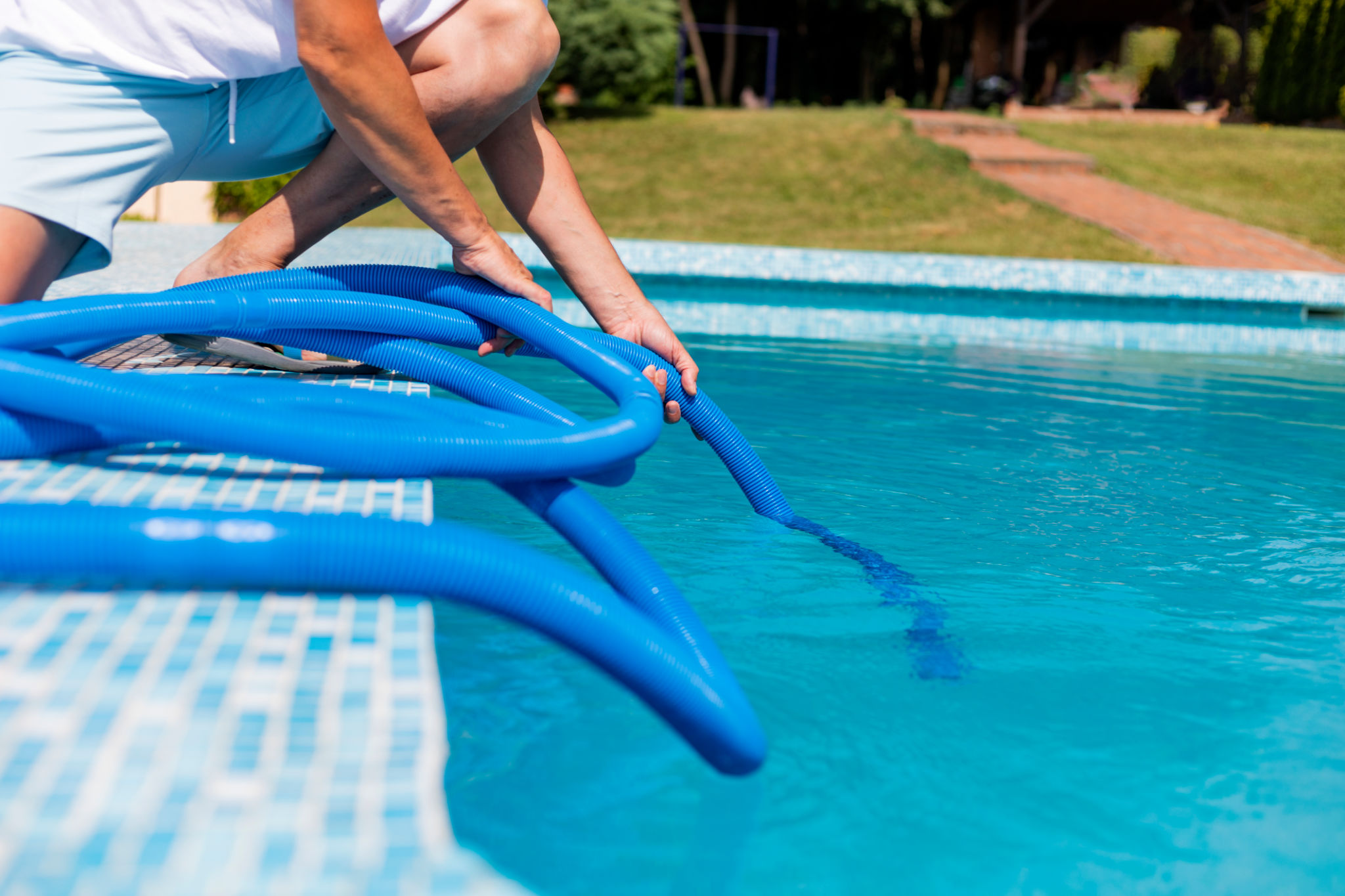Debunking Common Pool Cleaning Myths
TS
Understanding Pool Cleaning Myths
Maintaining a swimming pool can often seem daunting, especially with numerous myths circulating about what is required to keep it clean and safe. Misinformation can lead to unnecessary work and wasted resources. Here, we aim to debunk some common myths and provide clarity on effective pool maintenance.

Myth 1: Crystal Clear Water Means a Clean Pool
Many people believe that if the water in their pool is clear, it must be clean. While crystal clear water is visually appealing, it doesn’t necessarily mean that the pool is free from harmful bacteria or contaminants. Regular testing of the pool’s chemical levels is essential to ensure that the water is safe for swimming.
Proper chemical balance includes maintaining adequate chlorine levels and ensuring the pH is within the recommended range. This helps in not only keeping the water clear but also maintaining a healthy swimming environment.
Myth 2: Chlorine Is Harmful to Swimmers
Another widespread myth is that chlorine is dangerous for swimmers. In reality, chlorine is vital for keeping pool water safe by killing bacteria and other pathogens. However, many people confuse the smell of chlorine with its presence in the water. The strong chemical odor often indicates that the chlorine is working overtime due to contaminants.

Maintaining proper chlorine levels ensures that it is effective without being harmful. It's crucial to follow guidelines for chlorine usage and regularly test the pool water to maintain balance.
Myth 3: Pool Water Must Be Changed Regularly
It’s a common misconception that pool water needs to be completely drained and replaced frequently. The reality is that with proper maintenance, including regular filtration and chemical balancing, pool water can stay fresh for extended periods. Draining a pool should only be considered under specific circumstances, such as major contamination or repairs.
Regular backwashing of the filter and occasional partial water changes are usually sufficient to maintain water quality without wasting resources.

Myth 4: Pool Maintenance Is Time-Consuming
Many pool owners believe that maintaining a pool requires hours of labor each week. In truth, with a consistent maintenance schedule and the right tools, pool care can be streamlined and efficient. Investing in automatic cleaners and learning efficient cleaning techniques can significantly reduce the time spent on maintenance.
Creating a simple routine that includes skimming debris, checking chemical levels, and running the filter system can keep your pool in top condition without taking up all your free time.
Myth 5: More Chemicals Equal Better Results
There is a misconception that adding more chemicals will enhance water quality. Overuse of chemicals can lead to an imbalance, causing irritation to swimmers and potential damage to pool equipment. It’s important to follow recommended guidelines for chemical use and seek professional advice when necessary.

Regular testing and understanding your pool's specific needs are essential in achieving a balanced environment. Quality over quantity should always be the approach when it comes to pool chemicals.
Conclusion
Debunking these common myths can lead to more effective and efficient pool maintenance. By understanding the realities of pool care, owners can enjoy a cleaner, safer swimming experience while saving time and resources. Aim for informed decisions based on facts rather than misconceptions, and your pool will remain an inviting oasis all season long.